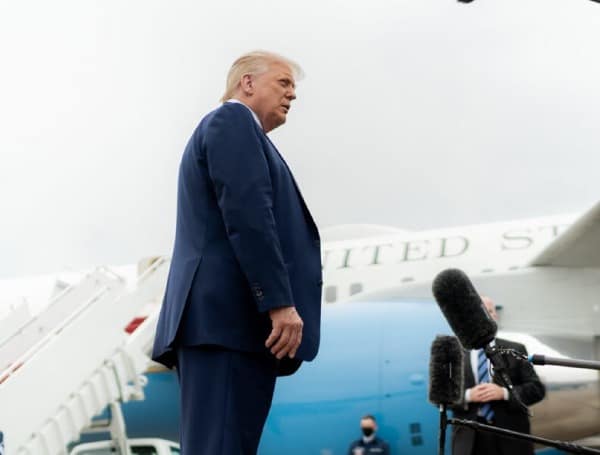President Donald Trump’s relentless pursuit of election-irregularity claims has not won over any federal judges who have heard more than four dozen complaints filed on his behalf.
But he has convinced at least a dozen Republican senators who have agreed to listen to objections on Tuesday, which is when the House votes to certify the 2020 election results, and represents the president’s last gasp for a second term.
At least 140 GOP lawmakers in the House have signaled that they will vote against certifying the outcome. But in order for their objections to be heard, at least one senator had to go along.
Republican Sen. Josh Hawley of Missouri was the first to agree to hear the House members’ arguments. In recent days at least 11 more Republicans, led by Sen. Ted Cruz of Texas, have sided with Hawley.
GOP lawmakers say they don’t want to necessarily overturn the popular vote or the Electoral College’s decision that President-elect Joe Biden is the winner.
Rather they want a special election commission to take 10 days to review assertions on improper election practices that deny Biden the presidency.
Besides Hawley and Cruz, the roster includes Sens. Marsha Blackburn (Tenn.), Mike Braun (Ind.), Steve Daines (Mont.), Ron Johnson (Wis.), John Kennedy (La.), James Lankford (Okla.) and Sens.-elect Bill Hagerty (Tenn.), Cynthia Lummis (Wyo.), Roger Marshall (Kan.) and Tommy Tuberville (Ala.).
More centrist Republicans, like Sens. Mitt Romney, Lisa Murkowski and Pat Toomey, have already agreed to uphold Biden’s victory.
In an interview Sunday with Maria Bartiromo of Fox News, Cruz said there were “unprecedented allegations of voter fraud, violations and lax enforcement of election law, and other voting irregularities.”
When Bartiromo asked about Attorney General Bill Barr, the courts and the Supreme Court all saying there wasn’t widespread evidence of election fraud, Cruz said, “Each of those different players has a different role in our constitutional system.”
“Bill Barr was speaking as to the evidence the Department of Justice saw. The Department of Justice wasn’t administering any elections, did not have access to particularly widespread evidence on either side of the issue,” Cruz said.
“As for the states, there’s a lot of people in the states and state legislatures who expressed deep, deep concerns about the unlawful practices that we saw on Election Day, that was saw particularly in cities controlled by Democratic politicians: shutting down the vote, throwing out observers, disregarding the law.”
Cruz added that lawmakers on Tuesday face “two pretty lousy choices.”
“One, we can vote to certify by not considering any objection. If we do that that will be heard by a lot of Americans as saying, ‘We don’t think voter fraud is a real concern. We don’t think these claims should be investigated thoroughly.’ I know that’s not what most of us believe” said the Texan, who’s earned a reputation as a strict constitutionalist.
“And, secondly, almost all of us don’t want to be in a position where we’re suggesting setting aside the results of an election just because the candidate we supported didn’t happen to prevail. That’s not a principled constitutional position.”
Still, Cruz explained of the push for a special commission, “We ought to resolve these claims not just dismiss them out of hand.”
